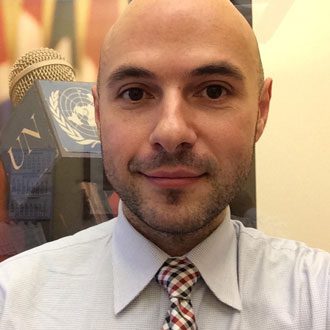
As the number of governments embracing e-diplomacy grows exponentially, around the world, the need for more research and training is becoming more and more evident. Indeed, in order to make the most of any digital agenda, it is important to better understand how the practice of e-diplomacy can contribute to a better foreign policy strategy, both at the bilateral and multilateral level, and how traditional diplomacy can be complemented by new tools.
The sudden spread of e-diplomacy – after almost a decade of under-the-radar incubation at the US State Department and a small number of other MFAs – has forced many world leaders, foreign ministers, and diplomats to try it out, often with great success. It can be described as a sort of evolutionary process from traditional to innovative, from official to experimental, from old practices to new ideas.
Adaptation is in the very fabric of diplomacy, but the past few years have challenged the way diplomats see the world and the way foreign policy priorities are actuated. Unfortunately, it seems that the challenge resides in the way we see technology: not as a tool to improve the way we operate, but more as a barrier that makes it more difficult to proceed.
Technology is the means, not the reason. It is the result of ideas and as such it needs to be directed to better serve our scopes. As volatile as technology can be – mostly because it evolves constantly – what we need to focus on is not technology itself, but the nature of innovation.
Of course diplomats are not technology geeks. Nobody is expecting them to be. Rather than studying technology and applying it to their practice, the job of a diplomat must be to understand how technology can complement diplomacy. The inner working of platforms, clouds, apps, online communities, and social networks is certainly not in the nature of the diplomat’s job. What matters is to understand how those technologies can be manipulated and shaped around foreign policy goals.
The way forward is through research and training. Once we go beyond the use of social media – as of now the most visible side of digital diplomacy – the road ahead is less clear and smooth than it might have seemed at first sight. Social media have certainly helped us embrace digital diplomacy, but more needs to be done to proceed to the next step.
“If you had told any foreign-policy mandarin 10 years ago that the Swedish foreign minister and the world’s only superpower would be communicating critical messages in posts limited to 140 characters, you would have been soundly ridiculed,” writes Fergus Hanson, nonresident fellow in Brookings’ Foreign Policy program, in a recent article for the Canadian International Council. “While there are still some Luddite foreign ministries trying to ignore the changes afoot, theirs is increasingly a losing position.”
The same, however, can be said for those government embracing social media and e-diplomacy without really understanding it. While those tools are often simple-to-use platforms, the resulting effects can be greatly underestimated.
It is key to understand that training is crucial for making e-diplomacy successful, less risky, more efficient, and more engaging.
First of all, responsibility: the change diplomacy is going through makes all diplomats more visible and thus more responsible of their own actions and words. What we say on Twitter and Facebook is heard thousands of miles away, even in the most remote regions of the world. It is heard by people and governments we would rather not to interact with.
Secondly, being able to engage with less traditional players has perhaps given everybody a better understanding of our own surroundings and of societies we couldn’t identify with before. It has also made everybody more aware of the power of words.
Thirdly, “communication should never come after the decision-making process but it should rather be part of it as well as contribute to it,” said Giuseppe Manzo, spokesperson of Italy’s Minister of Foreign Affairs, at a round table in Milan, Italy. “To communicate our foreign policy agenda is indeed to built its foundations.”
While what Manzo says applies to both traditional and less-traditional diplomacy, it makes clear how responsibility rests in the hands of those who communicate, as our words can rapidly provoke a domino effect extremely damaging to our diplomatic agenda and our national security, as the events in Benghazi and Cairo in September 2012 show.
[Andreas Sandre, a Press and Public Affairs Officer at the Embassy of Italy in Washington DC. The views expressed in the article are the author’s only and do not necessarily reflect those of the Embassy of Italy. On Twitter: @andreas212nyc]


